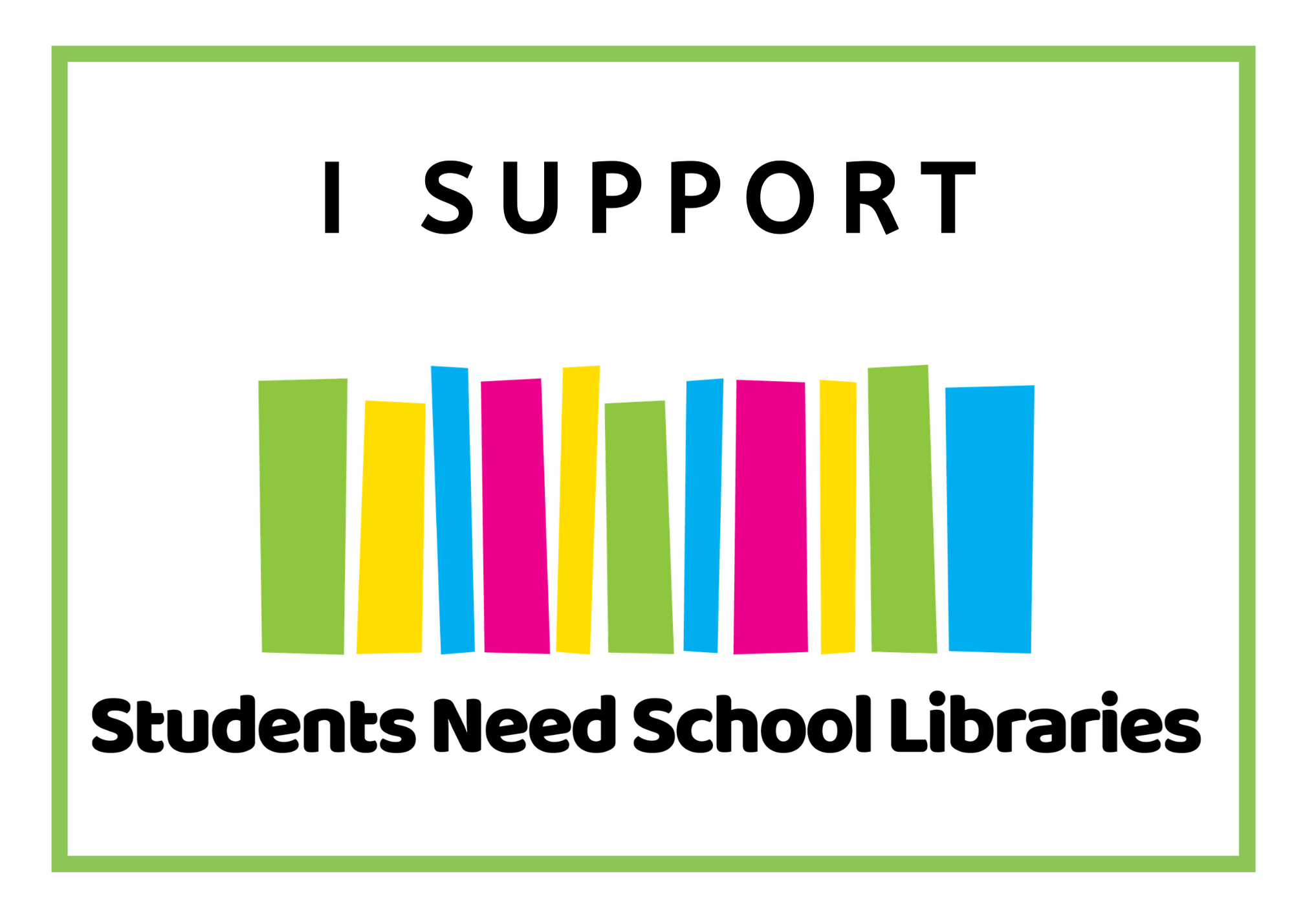Every Day Advocacy: Little things you can do that you don’t even realise are advocating for your school library
Advocacy, it’s a word I use a lot. It is vitally important for school libraries and school library staff to advocate for their spaces, services and positions. But sometimes I think we believe advocacy just refers to the big actions – writing a letter to the principal or school board about securing funding for the school library, or fighting against censorship. And yes, these big things are definitely advocacy and most definitely super important. But that’s not all advocacy is. Here are a few little things I think count as advocacy, little things that can be done every day to advocate for your school library.
Customer service with a smile
I think people forget that 80% of work in a school library is customer service. Responding to enquiries, answering questions, assisting with checkouts and returns at the circulation desk, responding to emails, fixing the printer, or getting staplers, paperclips, hair ties or basically any other thing a staff or student might need. And sometimes it’s so easy to say “that’s not my job, go away”. And setting boundaries is totally okay. But I try to remember, just because I’ve handed a stapler to five people that day, for the fifth person it’s their first and only interaction with me. How I hand them the stapler and what I say and, most importantly, how I say it, shapes their feelings and thoughts about me, my school library and school libraries in general. For that person, being handed the stapler in a frustrated, “I’m over this” way compared to being handed the stapler with a smile, a “there you go and what else can I do for you?”, makes a massive difference. When they think about the school library, how will they remember the little interactions?
Overdues
Ahh, the bane of most librarians. Overdue books. I say most librarians, because there are a few – like me – who actually couldn’t care less about overdues. Perhaps that’s because I’ve been banned from my local public library for having too many overdue items. Yep, I’m one of those people. So it’s very hard for me to get too concerned about students having overdue books.
I tell my students I would much rather the book sit on their shelf, three months overdue, with the slight chance they will read it, than sit gathering dust on the library shelves. My students can borrow when they have overdues and they know they are not in trouble when they get an automatic overdue email from the library system. But for some students and even families, the overdue email is the only interaction they have with a school library. An overdue email can say a lot about a school library.
I dramatically altered the wording of our overdue emails when I took over my current school library. I wanted it to be a pleasant email to read, reducing some of that initial “we are in trouble” and fear reaction. Our library system emails the parents or family members of our junior school students and for some of them, that is the first or only interaction they have with our library. Our overdue email now doesn’t even have the word overdue in it and starts with a statement about how we hope they and their child are enjoying the book, the importance of reading and friendly reminder to renew or return their current book and then come in to borrow other titles. Our overdue emails are part of our outreach and they need to read as warm and as welcoming as the welcome they will get when they are in the library.
Problem solving
When people know they can come to you to solve problems, their need for your increases. I love being able to help people, but that doesn’t mean I say yes to everything. Instead, sometimes even just trying is enough. My favourite requests are for finding access to research articles, squeezing another group into our space or finding and purchasing a requested resource. If it’s in my power to do it, I will, because solving problems, meeting needs and helping are key services of the library, but it’s also a form of advocacy. How much people value, rely on and speak well of the library reflects what we can do for others. If they know they can come to us to help solve their problems, the library and library staff become key resources they rely upon.
Build relationships
Good relationships are key to advocacy (and good practice in general, I would argue). Stopping to chat to colleagues, parents and students, making time to get to know others, build connection, understand their roles and needs in that role make the school library team a better part of the school community. Building relationships helps to understand how the library can serve that community.
Speak positively
When someone asks you about your day, job or what’s been happening in the library, how do you speak about it? Is it a chance to share the magic of the day or the issues? Now, don’t get me wrong, speaking honestly with my trusted circle, who truly understands and who can listen to me speak about the challenges and frustrations of the day is super important, but in other situations it’s important to share the good, the positives and the wins. I’m the first one to sigh when someone asks me how my day has been and say, “busy, I need a rest.” Because life in the library is busy!! And some days I’d really like to be able to go to grab a bite to eat without being interrupted a million times!!! But I know how important it is to share the positives when someone asks. It’s a great way to share little snippets of life in the library and the joy of what we get to do each day.
Learn something new
Being good at our job is an excellent way to advocate for the school library and profession. Learning a new skill, upskilling in an area of need or being able to answer the next request with confidence and speed is a great reflection on the school library. I love setting a goal to learn something new or get better at something I do regularly. Professional development, learning from those I work with, connecting to my local school librarian network, attending an event or webinar organised by school library associations, all help me do my job well and advocate for my school library.
How do you advocate for your school library every day?



Leave a Reply